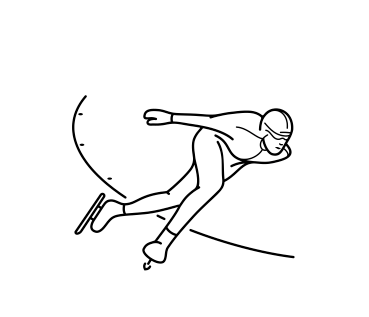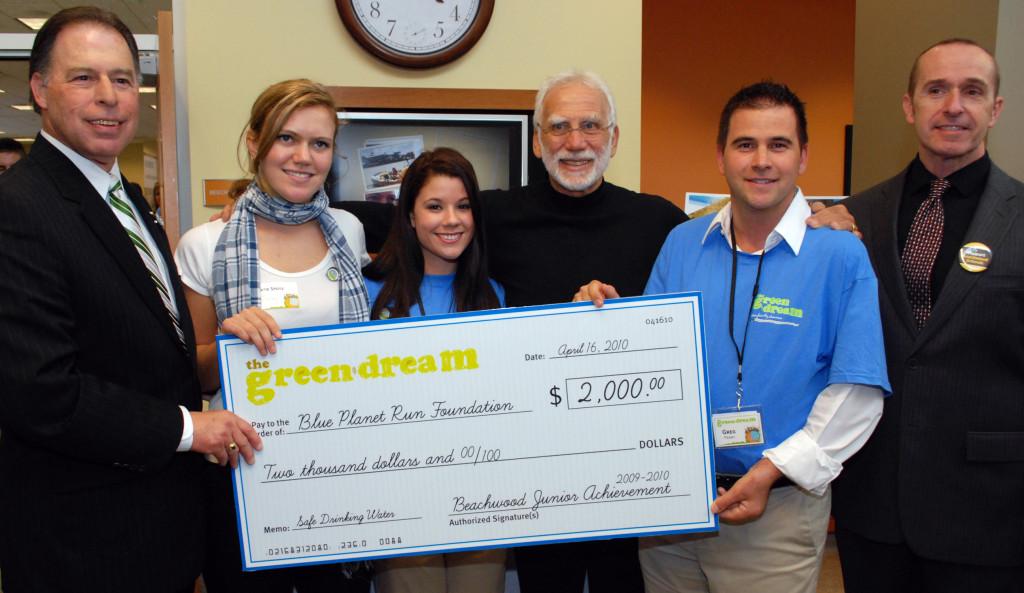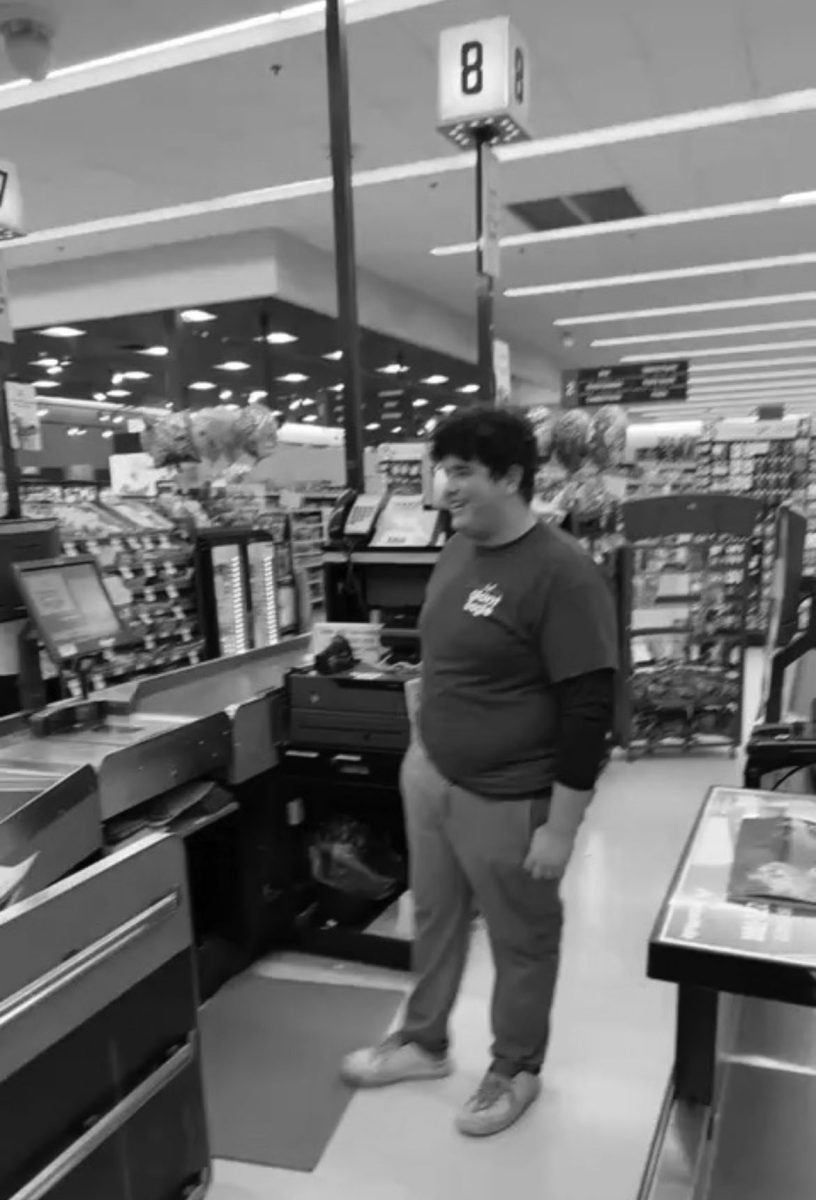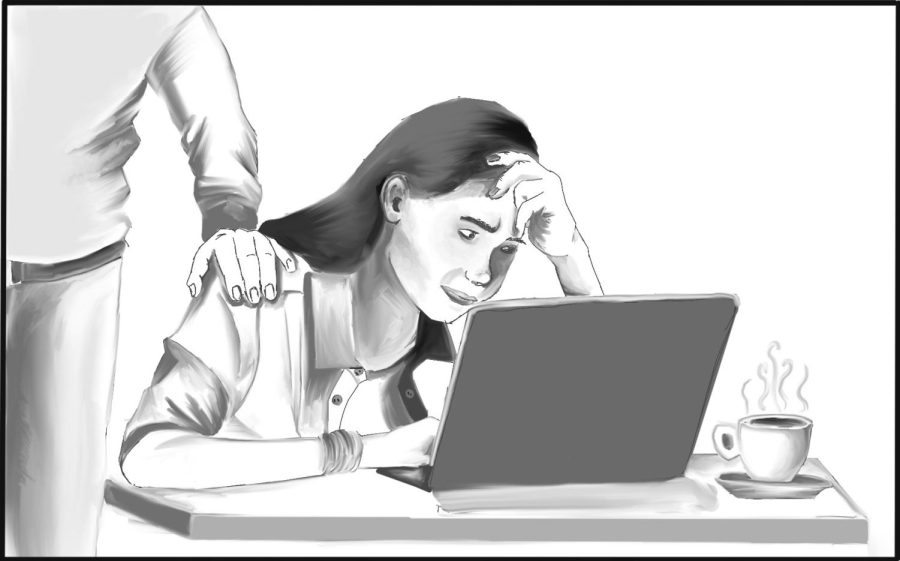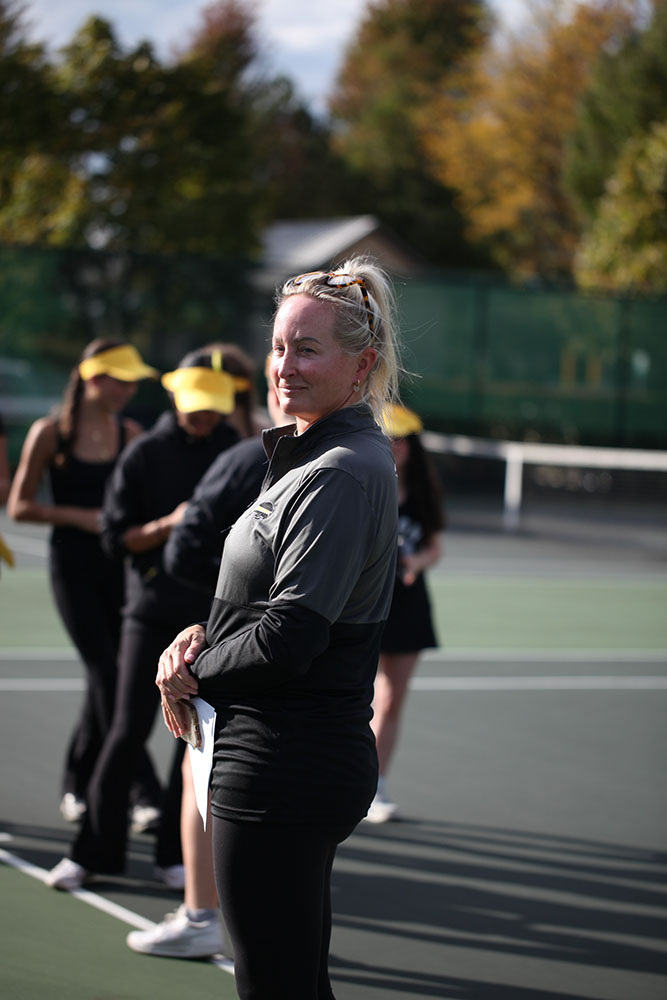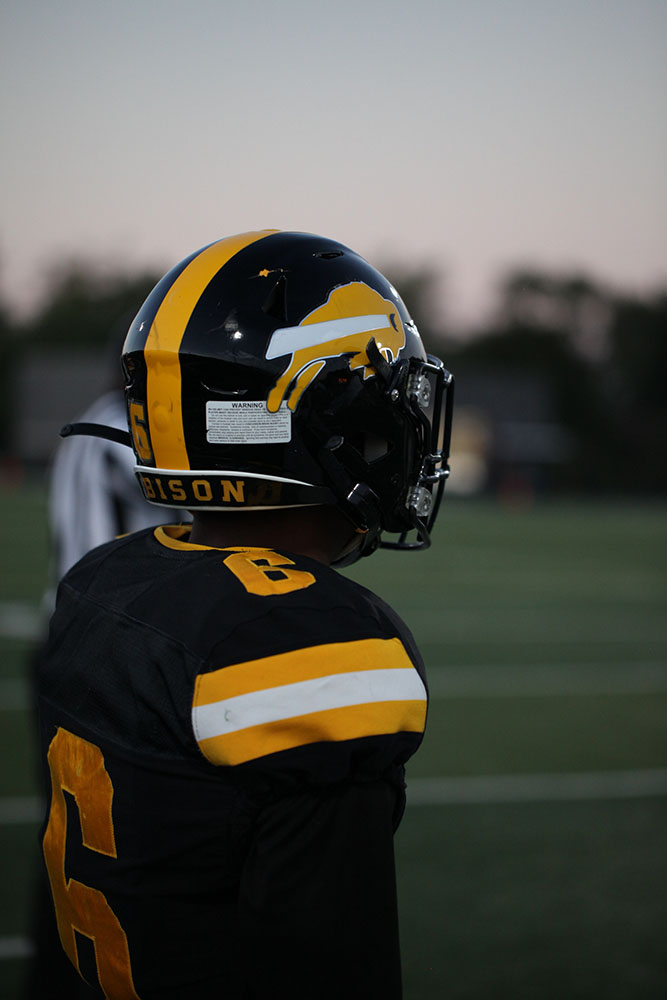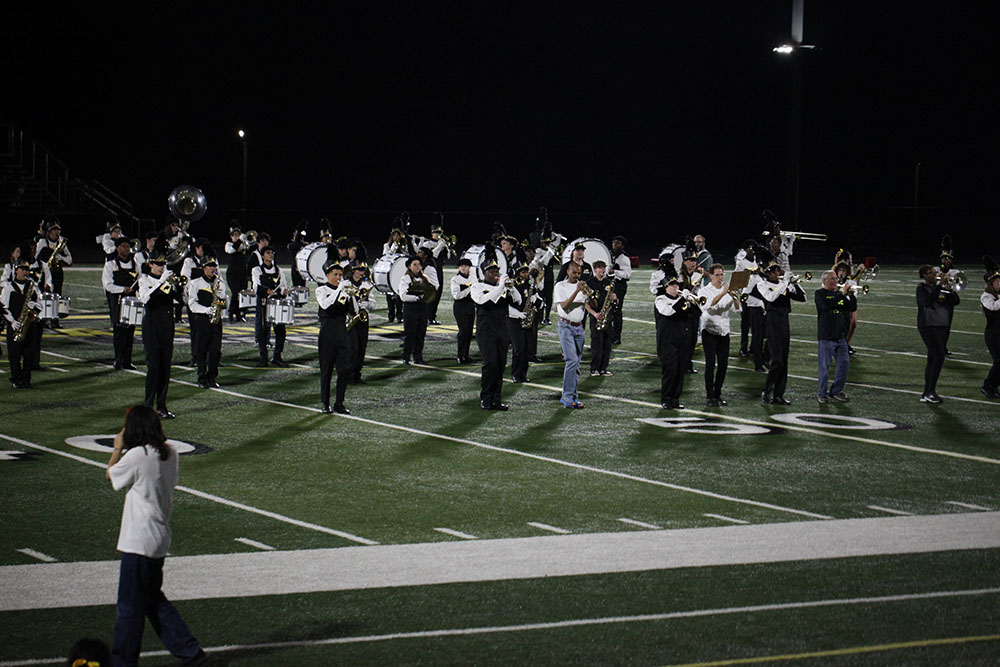After years of dedication, seniors Desmond Thatcher and Mia Shcherbakov and junior Dalilah Harrison made the tough decision to step back from the activities that once defined them.
Whether it was burnout, shifting interests, or the need for balance, each found that letting go—at least for now—was the healthiest choice they could make for themselves.
After eight years of racing around the ice, Desmond Thatcher stepped back from competitive speed skating this year to focus on the next chapter of life.
“I’ve been speed skating since I was 10,” Thatcher said.
He first got into the sport because he lived right next to the skating rink, and it just made sense for him to start skating.
“I live right next to Thornton Park, so it’s an ice rink [close to] my house,” he said. “I didn’t want to do figure skating. Hockey was not an option, and I was always fast, so I always chose speed skating.”
When he first started, he didn’t really know what to expect, but he quickly got more involved in the sport
“When I first started, I didn’t really know what I was getting into,” he added.
As time went on, speed skating became way more than just something fun to do after school. It became something he worked really hard at.
“I’ve won a lot of competitions, definitely more as I progressed through skating,” he said. “I’ve gotten more competitive and more victories… I’ve gotten PRs consistently and found success.”
In fact, Thatcher advanced to the highest levels and even qualified for nationals this year, which were held in Monmouth Junction, New Jersey in late March.
With 20 people in his division from the United States, Thatcher is proud of the accomplishment, even though he chose not to compete.
“Getting to nationals was a huge moment for me, especially with the amount of training and dedication that I put in,” he said.
Thatcher has had a lot of support from his coaches and teammates, and he really appreciates everything they’ve done for him.
“I skate at Cleveland Heights,” he said. “We have two main coaches. I’ve had many teammates. We’ve hung out and trained together as a team, so it’s a good environment. Having a support system is huge.”
Even though he enjoyed competing and found success, Thatcher decided 2025 would be a good time to take a break from competitive speed skating so he could focus on other things in his life.
“There are a few reasons,” he said. “I wanted to have fun during my senior year, and I’m doing skating in college [OSU], so it’s not like I’m leaving skating, but I [chose not to compete] this year.”
He feels that a lot of people don’t really understand how much effort and hard work go into a sport. Waking up early, lifting weights, dry land and skating; no matter which sport, it is a major time commitment if you want to be competitive.
“I think people sometimes forget that sports can be really demanding,” he said.
Even though he did not compete this year, he does plan to continue to skate in college.
“I’m not done skating,” he said.
Thatcher also understands that not a lot of people can make a career out of speed skating.
“Just like any sport that’s not really famous, you only get money [to make a living] if you get really high up there, like winning multiple medals at the Olympics,” he said. “But, in terms of ranking, you usually have people who just do it recreationally, then you have regional, national, and then a global stage.”
“It’s not like basketball or football where there’s huge sponsorships and tons of money in the sport,” he added.
Competing at this level meant traveling a lot, sometimes driving for hours just to get to events.
“Traveling for competitions is both exciting and exhausting,” he said. “I think the farthest I’ve traveled was a 10-hour drive to Lake Placid, New York.”
Although he is stepping back from competition for now, Thatcher remains grateful for the journey.
“It’s been incredible, he said. “I wouldn’t change any of it.”
“Speed skating has given me so much,” he added.
As he moves forward, Thatcher is excited to see what skating in college will be like.
“I’m looking forward to … seeing what opportunities come my way,” he said.
For now, he’s just enjoying his last year of high school and putting more time into a different sport. He applies his effort into running the 400m and 1600m in track.
“I’m just taking it all in, appreciating everything I’ve accomplished,” he said. “I can now focus on track with the same rigor that I was using for Skating.”

Senior Mia Shcherbakov started dancing at the age of six, but after many years of involvement and several breaks with the activity, she quit during her freshman year of high school.
“I started when I was six, and then I did it for a couple of years. I went back in sixth grade,” Shcherbakov said. “But it wasn’t until my freshman year that I decided to be fully done with it.”
The decision wasn’t easy for Shcherbakov, who had always loved dancing. However, balancing dance with other commitments became too challenging.
“I was playing soccer, and it was too hard to balance the two,” she said. “I would go from school to soccer practice, then straight to dance, and it just wasn’t working.”
But there was another reason Shcherbakov decided to leave dance behind—her growing frustration with the dance community.
“The dance community is not very nice,” she said. “Everyone is always competing with each other to be better, and there’s a lot of pressure to be perfect. It just got frustrating because you’re always staring at yourself in the mirror, and every mistake feels like a big deal.”
Shcherbakov’s story is a reminder of the pressures young people face in competitive environments and how important it is to listen to oneself and know when to step away from something that no longer feels right.
“I just wanted to do other stuff,” she said, reflecting on her decision. “I realized it was time to move on.”

(Rizsign via thenounproject)
Junior Dalilah Harrison stepped away from bowling in February this year after over ten years of success in the sport.
Harrison, who began bowling at the age of six, had found success in the sport at a young age, competing in leagues at Roseland Lanes in Oakwood and traveling to alleys in Youngstown, Parma and beyond.
“I used to compete and win scholarship money for the future,” she said. “…probably around $1,000 in total.”
Harrison’s journey began when she first discovered her love for the sport. Over the years, she honed her skills and competed in various tournaments across Ohio.
“I used to do a league at Roseland Lanes and competed at different alleys like Youngstown and Parma,” she said. “That’s really where I grew as a bowler.”
Harrison’s father has been a source of support throughout her journey.
“My father is a bowler,” she said. “He’s always been proud of me.”
Her highest score, a 220, may seem modest compared to adults in the pro circuit, but for her age [13] and experience, it was a testament to her skill.
However, her biggest accomplishments did not come from individual scores but from consistent excellence. She earned a spot on the first team USBC (United States Bowling Congress) for three consecutive years, a feat that few young bowlers achieve.
“Being first team USBC for three years in a row was my biggest accomplishment,” Harrison said. “It took a lot of hard work, but it paid off.”
Despite her success, Harrison’s bowling career came to an unexpected halt.

(Jackie Harrison)
“Beachwood doesn’t have a bowling team, so I just stopped bowling,” she said. “Honestly, I don’t know why I stopped. It just happened.”
Her decision to retire left many in the bowling community surprised, given her track record.
Reflecting on her career, Dalilah expressed a sense of pride in what she accomplished.
“I did it for 10 years,” she said. “It was a big part of my life.”
While her time on the lanes may be over, Harrison’s legacy as a bowling prodigy remains.
“I’m proud of what I achieved,” she said. “Bowling taught me discipline and gave me opportunities I’ll always be grateful for.”
Her dedication to the sport was evident in her consistent performance and her ability to rise to the occasion during competitions.
“I just loved the challenge of it,” Harrison said. “Every game was a chance to improve and push myself.”


